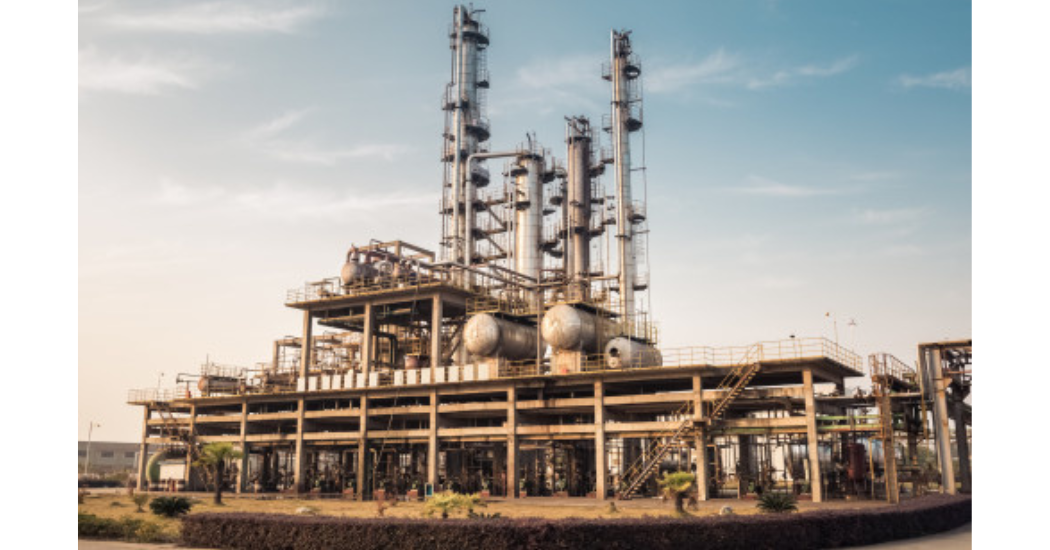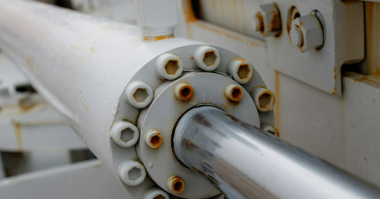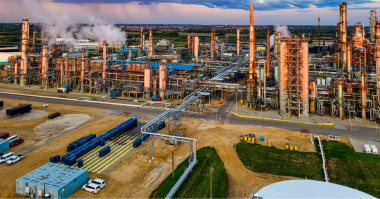In the chemical processing industry, equipment is often subjected to wide temperature fluctuations, high pressure, and corrosive chemicals. Maintaining control over these processes necessitates the installation of control valves and check valves at various points throughout the system, all of which should be able to withstand the above facility conditions.
At DFT®, they supply a broad selection of high-quality valves suitable for use in the chemical processing industry. Their control valves and check valves are engineered to handle some of the most severe environments. For example, DFT®’s check valves prevent fluid systems issues such as reverse flow and water hammer, while providing the strength needed to withstand harsh operating conditions. They comply with industry standards and can be customized to your specific chemical processing application.
RELATED: The Rise of Chemical Processing in America
Chemical Industry Challenges for Valves
The DFT® team of valve experts understands the unique challenges that face the chemical processing industry. When designing and building their valves, they keep operating and environmental conditions in mind to ensure they perform as expected. Additional considerations to keep in mind when selecting a valve for use in chemical processing systems include energy usage and flow configuration, all qualities of which affect the overall performance of the system.
Valve Applications in the Chemical Processing Industry
 Valves find applications in a wide range of chemical processing operations. For example:
Valves find applications in a wide range of chemical processing operations. For example:
- In nitrogen purging operations within chemical sampling systems, they control the amount of nitrogen dispensed into the system and prevent leakage from flowing back into the nitrogen source
- In cooling towers, they regulate pump startup and shutdown to facilitate proper water circulation and reduce heat generation
- In fluid processing systems, they eliminate the risk of water hammer
Some other common use cases for these critical components include use in:
- Compressors
- Condensate return systems
- Cryogenic equipment
- Ethylene production systems
- Evaporators
- Heat exchangers
- Metering pumps
- Mine dewatering systems
- Pump and compressor discharge systems
- Vacuum lines and breakers
- Water treatment facilities
Benefits of Using High-Quality Valves for Chemical Processing Applications
The chemical processing industry relies on high-quality valves to ensure the safety, functionality, and longevity of processing equipment. Valves from DFT® offer the following benefits:
- Improved safety. DFT® chemical valves offer improved safety due to their increased reliability and reduced risk of leakage or valve failure.
- Lower maintenance and downtime. Due to their lower maintenance requirements and decreased risk of downtime, our chemical valves provide improved productivity and cost savings.
- Longer service life. Valves from DFT® offer a longer service life. This translates into a reduced total cost of ownership compared to lower-quality valves.
- Compatibility. DFT® valves are compatible with a wide range of chemicals and operating conditions, enhancing their versatility and flexibility for chemical processing applications.
- Industry compliance. DFT® chemical valves are compliant with industry standards and regulations to ensure optimal reliability, quality, and consistent valve performance.
How to Choose the Right Chemical Valve Supplier
When it comes to selecting the right valve supplier for your chemical processing needs, there are various important factors to consider, including:
- Experience level. Be sure to choose a supplier with extensive experience and expertise in the chemical processing industry, as well as a proven track record of providing reliable, high-quality valves that meet industry standards.
- Product capabilities. Consider a potential valve supplier’s range of products and whether they can offer customization options to meet your unique requirements.
- Quality control and certifications. Check for the supplier’s quality control measures and industry certifications. Doing so will ensure you choose a partner that can provide quality, high-performance valves.
- Customer service. Be sure to evaluate the supplier’s customer service and support capabilities, including their level of responsiveness. Also make sure they have the necessary technical expertise to guide you through valve selection, installation, and maintenance.
- Pricing and turnaround. It’s important to compare pricing and lead times across different suppliers to make sure you’re getting a competitive rate and timely delivery for your valves.
Choose DFT® for Your Chemical Processing Valve Needs
At DFT®, they experienced and knowledgeable valve experts are available to help you find the ideal solution for your chemical processing needs. Check out the following resources to learn more about their valve solutions and how they benefit the chemical processing industry:
- Check valve catalog and brochure
- Control valve catalog and selection eBook
- The Rise of Chemical Processing in America eBook
- Application Success Stories
For additional information about our valve products and services, contact DFT or request a quote today.




Comments